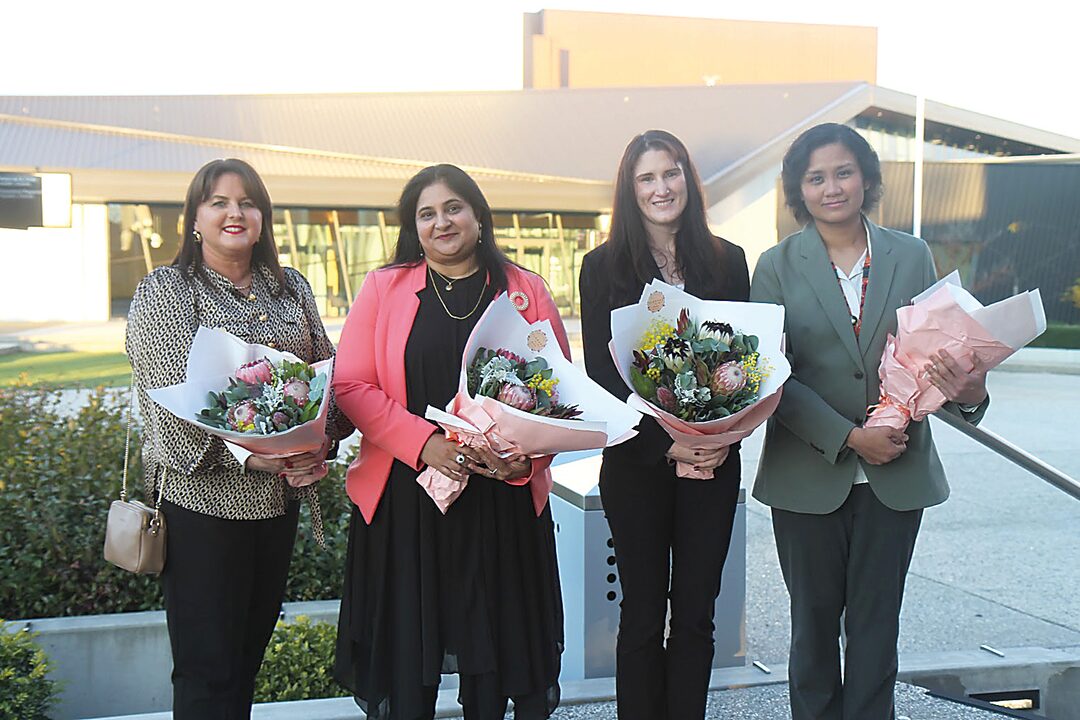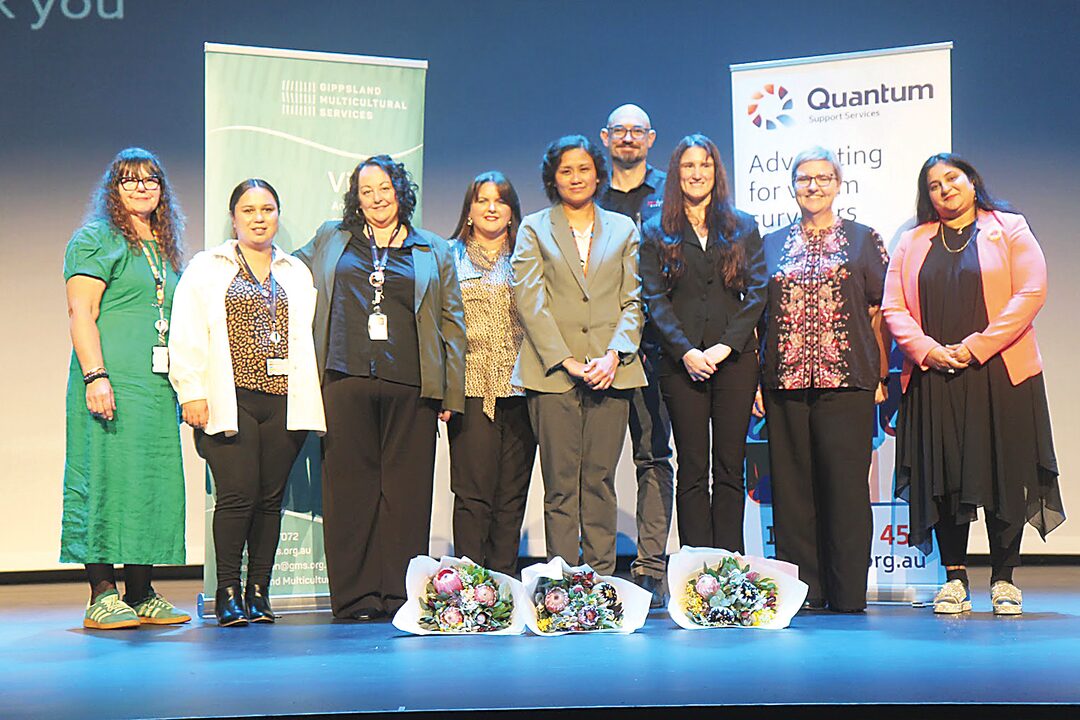By KATRINA BRANDON
Warning, this story includes intense themes and potentially triggering content.
CREATING a voice for women from all corners of the globe, multiple groups collaborated in making a documentary standing against violence toward women, and in particular, those with multicultural backgrounds.
The joint forces behind the film screened the documentary, Silent No More, at the Little Theatre in Traralgon.
Those behind the documentary include Quantum Support Services, Gippsland Multicultural Services, the Gippsland Family Violence Alliance, the Centre for Multicultural Youth and Deakin University.
“This is a documentary sharing the lived experience of women from multicultural backgrounds who have faced family violence. This film aims to raise awareness and provide a message of hope to women across our region and beyond,” MC Tanya Hancock from Quantum told the group.
Melbourne City Mission Chief Executive, Vicki Sutton, added “Silent No More is powerful. It’s deeply human, and it reminds us of the strength and resilience of victim survivors. It amplifies voices that often go unheard, and it brings forward stories that deserve to be seen, heard and honoured by the people here today who have shared their stories in this film.”
Before the screening, Ms Sutton welcomed the group, while Deakin University Associate Professor in psychology, Dr Lata Satyen, discussed the work leading up to the screening.
Dr Satyen is the founding co-convenor of the Deakin Network Against Gendered Violence (DNAGV). She is also the Victorian State Lead of the Australian Domestic, Family and Sexual Violence Recovery Alliance.
Dr Satyen’s recent project aimed to understand how services support multicultural communities, especially in regional areas, and particularly from communities that have not been previously examined in terms of their experiences and support needs. She discussed with the crowd that she focused mainly on Gippsland and Geelong, as crime statistics showed an 84 per cent difference in the number of family incidents per 100,000 population between regional and metropolitan areas in Victoria.
Greater areas for concern included Latrobe, Wellington, East Gippsland, Baw Baw and Geelong.
Dr Satyen’s research appeared in four stages.
The first stage included consultations with practitioners in both the Gippsland and Geelong regions, specifically those who had supported and were currently supporting multicultural communities.
Stage 2 involved talking with people, conducting two hour interviews with victim survivors from the study regions to share their stories and discuss how community support could be improved.
Consulting with community and faith-based leaders was the third stage of the project, aimed at understanding the challenges multicultural communities face in regional areas and the need for greater integration and successful collaboration between different types of services.
Lastly, Dr Satyen combined the findings and put them together as recommendations out to those in the other phases, asking whether their experiences had been translated accurately, and wanted them to rank what was the central area of fragmentation that was a priority for them.

“As other multicultural community groups in both Gippsland and Geelong have done, this worked really well in helping them understand the complexity of the cases, but also supporting them adequately,” she said.
“People also spoke quite greatly about the interest in providing person-centred care.
“They also found that there was successful integration of services when they had an ease of access with an interpreting service, so when they were readily available, it worked really well in terms of supporting the multicultural communities. Some of the areas for improvement include cultural competency.
“Practitioners spoke about the need for ongoing, regular training in relation to understanding cultural humility, understanding the needs of new and emerging multicultural communities who are starting to migrate and live in different areas and where they may not have had great interaction with them previously.
“Some of the main things that we need to understand are that they experience a lot of shame and stigma in sharing their experiences. So reporting their experience of family violence formally is a huge barrier because of the shame and ostracisation that they have experienced from their own families, friends and community members.”
Dr Satyen also highlighted there was many other complications for those in rural and regional areas, such as travel to and from practitioners and support services, a lack of awareness of services, language barriers, visa status complications, challenges in the justice system, and limited long-term support for recovery.
According to Dr Satyen, for some victims, deportation fears shroud them against reaching out.
Throughout the project, Dr Satyen said her team had meetings with Family Safety Victoria to ensure they truly understood the underlying issues and experiences, as well as ongoing support throughout the creation of the documentary.
Before the screening, Dr Satyen answered questions from the audience about her project.
Silent No More featured multiple survivors, including one who spoke at the screening, Victoria Police representatives, and others who provide support in the family and domestic violence sector, sharing their stories and experiences.
Kim Adams from the Gippsland Family Violence Alliance, featuring Sally Gafa from Gippsland Multicultural Services, Jill Page from Quantum Support Services, and Dr Satyen also led a panel discussion.
Silent No More will be made readily available as a standing resource, freely accessible to anyone interested in using and learning from it.












